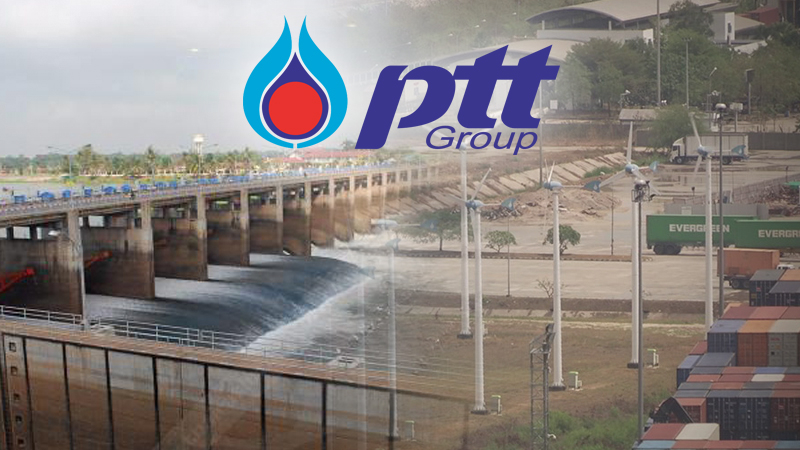PTT ready to help quench eastern factories’ thirst

PTT has urged the Office of National Water Resources (ONWR) to invite bids on a public-private joint venture that would more carefully manage water use in the East, home to hundreds of thirsty factories and with more development imminent.
President and chief executive Chansin Treenuchagron said on Thursday (February 6) that PTT Group is concerned about the drought situation in the East, noting that conditions depend heavily on the amount of rain that falls in May and June.
In the long run, he said, PTT would like to see a joint venture established to turn seawater into potable water in the Laem Chabang-Map Ta Phut areas of Chon Buri and Rayong, and PTT companies including PTTGC and Thai Oil were ready to participate.
He said the government should accept public-private bids on land reclamation and procuration and offer tax incentives to ease the high costs involved. The technology exists for turning seawater into freshwater, Chansin noted.
The currently strong baht has opened investment opportunities for PTT in the past few years, he said. Phase 3 of the Map Ta Phut Industrial development is expected to rise this year on land reclaimed from the sea. Phase 3 of the Laem Chabang port development will begin drawing investments at the end of the year or early next year.
“PTT Group operations this year still face many risks, including drought, the slow domestic economy and especially the coronavirus outbreak in China, which could affect global demand for oil and plastic beads,” Chansin said. “PTT has adjusted in the last two years to reduce its reliance on the Chinese market by turning to India, Africa and the rest of Southeast Asia, and this may be Thailand’s opportunity to produce substitutes for Chinese goods as well.”
He said PTT, at the direction of Energy Minister Sontirat Sonthichirawong, is negotiating with gas producers in the Gulf of Thailand and providers in Myanmar to reduce purchases in order to preserve resources, and is instead importing more liquefied natural gas, which is cheaper for producing electricity.
However, the negotiations are conducted cautiously so that they don’t affect major purchase agreements or “global daily contracted quantity”. The negotiations are expected to conclude within the first quarter of the year.
LNG for increasing electricity production must be purchased in “appropriate amounts” so as not to increase the “take or pay” burden, Chansin said. PTT might initially procure it in the form of “spot markets” on short-term contracts.
Government measures aimed at reducing the impacts of the baht’s appreciation and the relatively cheaper global price of LNG will lower the cost of producing electricity, he said.
PTT hopes to start importing LNG to spot markets in the second or third quarter, probably less than a million tonnes for short-term use by industries with no access to gas pipelines.
The users would have to switch over to LNG from costlier and more environmentally damaging fossil fuels such as palm oil and coal.





